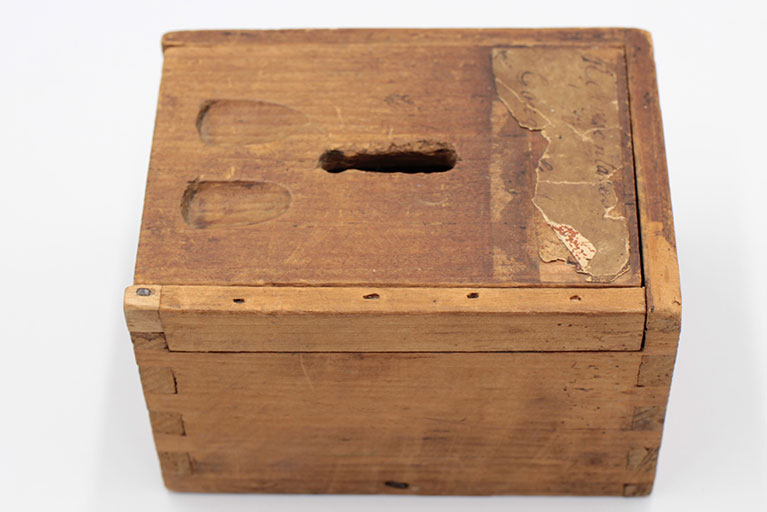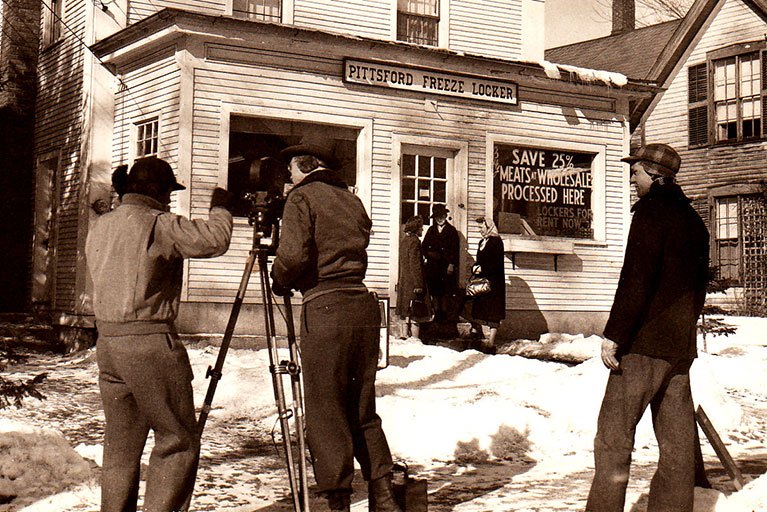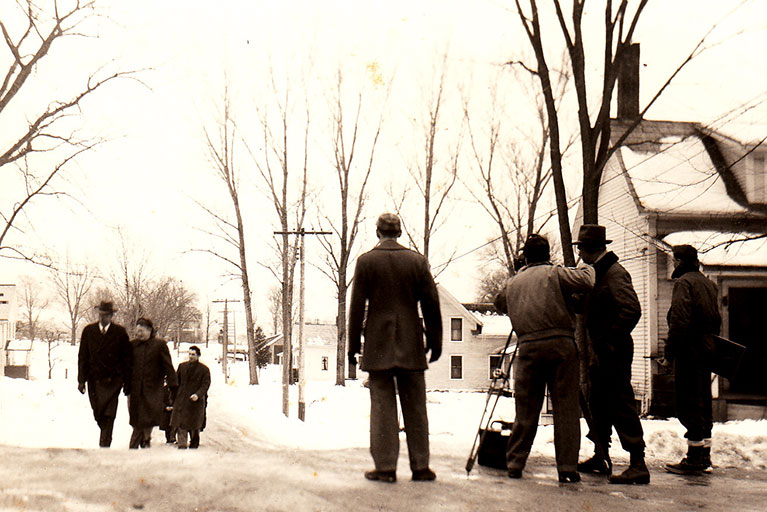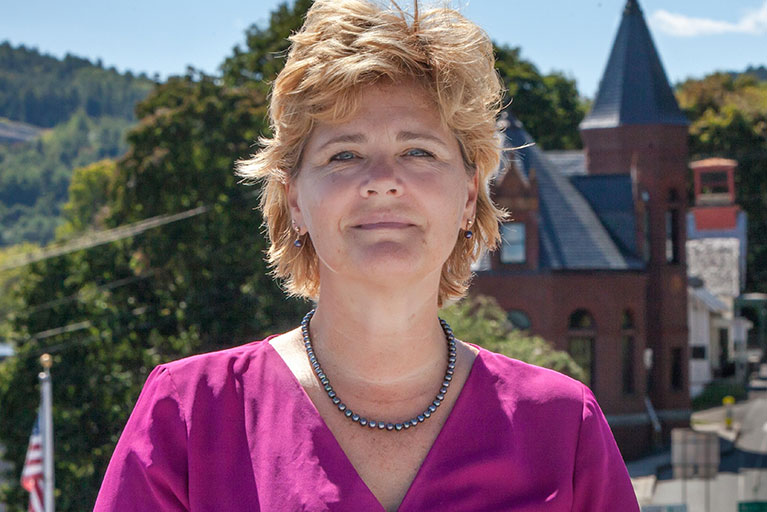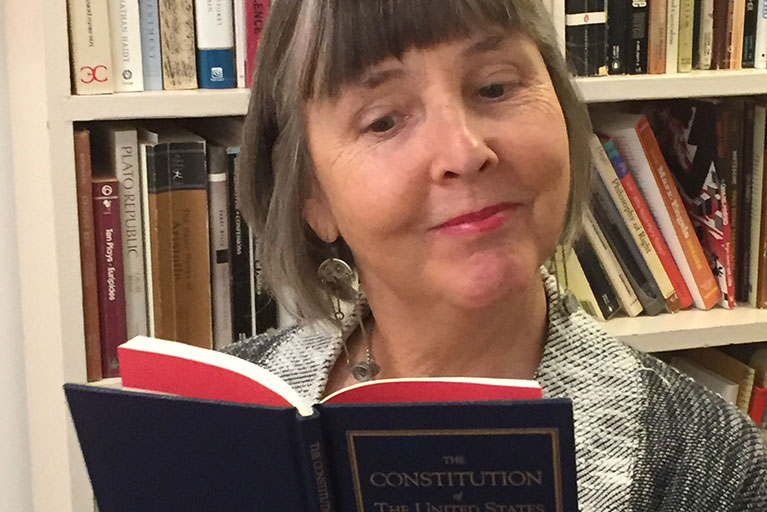A Town Solves a Problem
Town meeting is central to our identity as a little state on a human scale that does things differently. But what happens to town meeting when it needs to change during a pandemic? Or when it changes because Vermont itself has changed?
This Episode’s Featured Object:
Wooden ballot box from Waterford, Vermont
Amanda Gustin: You can really see over however many years these were used, people stuffing again and again and again, their fingers just grazing the side of that slot as they put the names in the box.
Teresa Greene: The box actually is more worn around the slot than it is where you can take the lid off.
Images: Recording “A Town Solves a Problem” in Pittsford, Vermont in 1950.
Representative Sarah Copeland-Hanzas of Bradford.
Professor Meg Mott is the Town Moderator in Putney.
Episode Transcript
[Sound of bell ringing, archival movie audio]
Film Narrator: On Town Meeting Day, the church bells bring the people out…they gather at their town hall, the center of every town’s civic life.
The black-and-white film is called “A Town Solves a Problem.” It’s a scripted production, set in Pittsford, Vermont. We see a one-room schoolhouse, people shoveling snow, a full-serve gas station…and town meeting.
Film narrator: They meet old friends, gossip a bit, and exchange news. And make plans for another busy year ahead.
The film was produced by the US Army in 1950 to advance democracy in occupied countries after World War Two. The Army believed that Vermont’s Town Meeting tradition offered an example of how democracies operate best.
Episode Credits
Before Your Time is presented by Vermont Humanities and the Vermont Historical Society. This episode was produced by Amanda Gustin and Ryan Newswanger, with help from Hannah Kirkpatrick and with research assistance from Fred Pond.
Thanks to our guests: Teresa Greene, Stephen Belcher, Representative Sarah Copeland-Hanzas, and Meg Mott. And thanks to Brattleboro Community TV for the recording of the Putney town meeting.
This episode is part of the “Why it Matters: Civics and Electoral Participation” initiative sponsored by the Andrew W. Mellon Foundation and the Federation for State Humanities Councils.
Music is by Michael Chapman and the Woodpiles, Christian Larssen, Locran, and Zoo.
